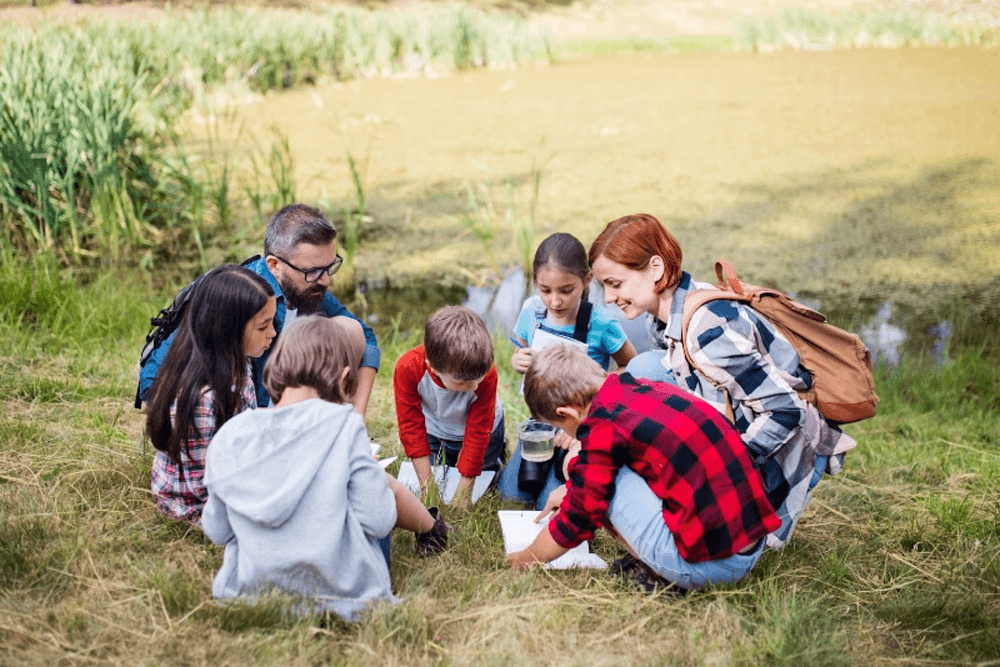
28 Nov The Importance of Outdoor Education in Schools
It is a well-established fact that children spend the majority of their day in school. This circumstance is limiting their time spent in outdoor activities, but they are crucial for them to grow mentally and physically. A life without other activities will offer nothing but boredom, which is why the schools in today’s world are compelled to adopt this system called outdoor activities in their timetable. Therefore, the best schools must strive for a harmonious balance between indoors and outdoors, ensuring holistic development under their care.
What comprises outdoor education?
Outdoor education also known as nature-based education, is a holistic approach to education followed by many reputed institutions such as SNIS, one of the best schools in south India. Its primary objective is to create a love toward learning and nature, but it provides subsequent changes in students’ results and behaviours. This type of education aims to connect individuals with nature and impart knowledge and skills related to the environment. Below, we present some of the essential outdoor activities integrated with the curriculum of the best international school in Bangalore.
- A walk into wildness – Guide students to the natural settings, including forests, hills, and wetlands, to observe and learn about them.
- Camping – Schools can organise a trip to teach outdoor skills, coordination, teamwork, and basic survival tips.
- Adventure – Outdoor adventures like trekking and rock climbing promote physical fitness.
- Survival Skills –Teaching basic survival skills, such as fire-making and shelter construction, will help them to enhance self-reliance in the outdoors.
- Nature Conservation Projects – Engaging students to be part of activities like tree planting, wildlife habitat restoration, and cleaning up natural areas.
- Wildlife Safaris – Visiting national parks and wildlife sanctuaries to observe and study native wildlife in their natural habitats.
- Environmental Workshops – Facilitate workshops on topics like waste management and the importance of preserving local ecosystems.
- Farm Visits- Learning about agriculture, organic farming practices, and the importance of food production methods.
Benefits of Outdoor Education
Nature-based education is crucial for students in their emotional, intellectual, and social behavioural development. Children confined to the four walls have limitation in their knowledge, but the introduction of outdoor education broadens their horizon. Let’s explore some of the benefits found in research.
Personal growth
Plenty of research has consistently demonstrated that students engaged in outdoor activities experience superior personal development. Such participation heightens their levels of self-confidence, self-esteem, independence, and achievements. Moreover, these activities often enhance children’s problem-solving skills, resilience, adaptability, and instil a greater sense of responsibility. The exposure to diverse challenges and situations in outdoor settings significantly contributes to the holistic growth of students.
Academic and skill development
Pupils who have undergone outdoor learning experience have proved to be performing well in academics and other areas. A happy mind is very different from a frustrated one. Engaging students in outdoor activities improves mental stability and overall productivity.
Improve productivity in a diverse environment.
Boredom arises when one is confined to a single location, resulting in less improvement in overall performance. In contrast, students who engage in extracurricular pursuits outside consistently maintain their enthusiasm, demonstrating more interest in their opportunities. Such individuals always motivate themselves and autonomously nurture their skill sets.
Attachment to the nature
Education outside shows students what world they are a part of. Exploring them gives awareness and a better understanding of people and nature. Furthermore, this exposure motivates students to work with nature and learn about how it impacts their daily existence. Certainly, they come to realise that the environment they are part of is attached to their life, and no peaceful existence is possible without coordinating with them. By acquiring these fundamental skills, students develop affection for nature and preserve it better than their ancestors preserve.
Go for a lesson outside and feel the difference.
Engaging in outdoor education is not simply using a place other than the usual classroom that is used for teaching and learning. It is about taking young people out and offering them a different, comfortable, exciting, and challenging atmosphere that enhances their cognitive abilities. This idea is not only about taking children out on the campus alone but also about taking them for small excursions, such as workshops or activities. The experience they get during this visit will help them explore the world of knowledge that is beyond the four walls.
The conventional pedagogical approach is always confined to the classroom and offers limited inspiration. It is monotonous and offers less role for children in the learning process. But to encourage teamwork, creativity, and leadership skills, children must come out and learn something other than what they do every day. To develop critical thinking, decision-making, and problem-solving skills, students must learn some innovative skills that equip them to be successful in their careers.
Conclusion
Engaging in outside activities can offer many benefits for students and teachers. These efforts aid children in reducing stress and managing behavioural issues among them, which is essential for their growth and future. Although the cost associated with such outside visits may be expensive, this can be tailored according to the capacity of the individual institution. Educators can consider arranging alternative on-campus settings that stimulate positive energy among students.


Sorry, the comment form is closed at this time.